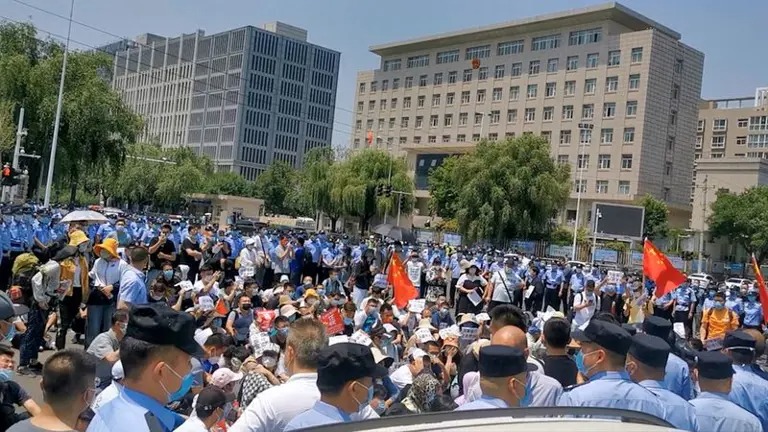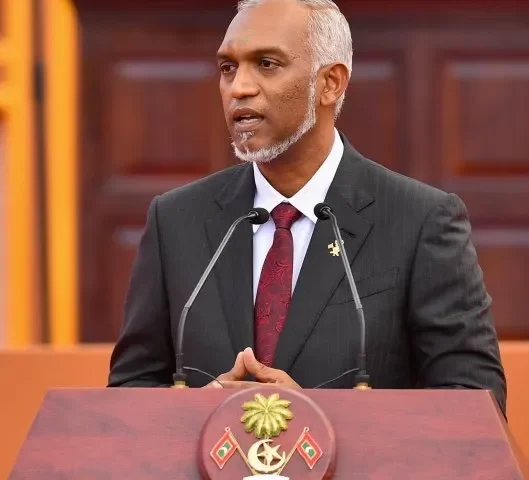China’s slowing economy has fueled a surge in protests, leading to a harsh government response in some cases. In one instance, three demonstrators in Henan province have been held for months after demanding repayment from rural banks that defrauded thousands of depositors.
The detentions, reported by Reuters, reflect Beijing’s growing concern over rising dissent linked to financial distress. Ou Yangyun, a 39-year-old small-business owner, and two others were arrested in February after protesting outside a Zhengzhou train station, chanting, “Henan banks, return our savings!”
Economic protests in China jumped 127% in the fourth quarter of 2023 from a year earlier, according to the China Dissent Monitor project. These demonstrations span unpaid wages, unfinished apartments, and investment scams.
“The central government is going to be eager to halt the protests in their tracks to prevent widespread unrest as the economy falters,” said Andrew Collier of Orient Capital Research in Hong Kong.
However, some experts see the response to the Henan protest as unusually severe. “Four months of detention for something as small as participating in a peaceful protest speaks volumes about the government’s inability to handle this slowly growing crisis,” said Peter Dahlin of Safeguard Defenders.
The Henan scandal, where four rural banks lost $4.2 billion in deposits, isn’t directly linked to China’s slowdown. But it underscores broader financial strains. While many small depositors were compensated, over 1,000 await repayment.
Chinese authorities haven’t publicly addressed the rise in economic protests. In some cases, they’ve promised to tackle underlying issues without acknowledging public anger. Officials didn’t respond to Reuters’ requests for comment on the Henan detentions.
The government’s challenge is balancing economic grievances with social stability. As one Henan depositor told Reuters, “This is our whole family’s money, earned through blood and sweat. I’m not going to give up.”















